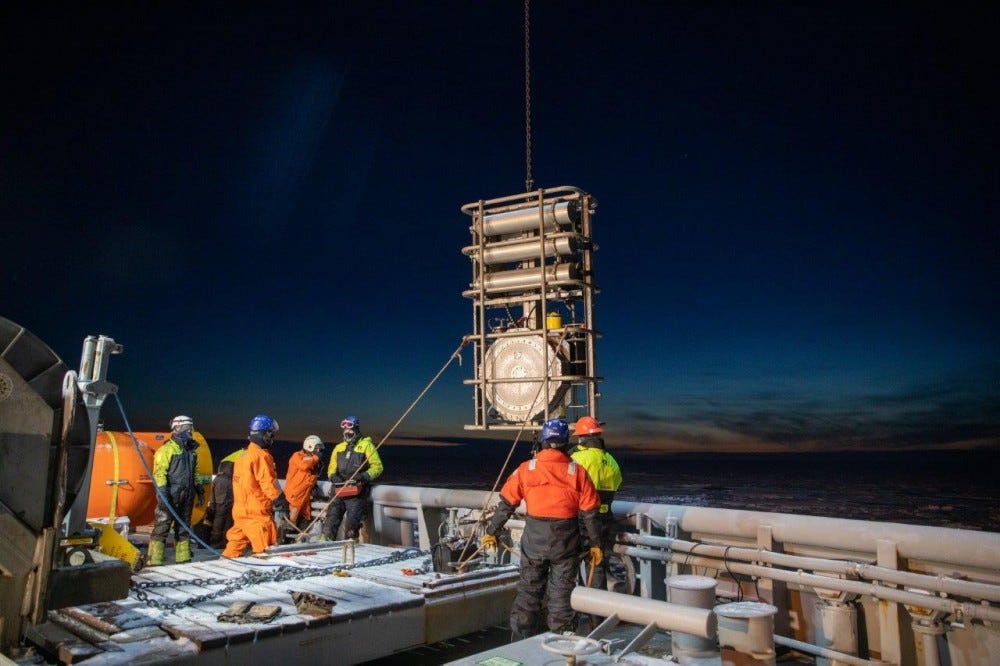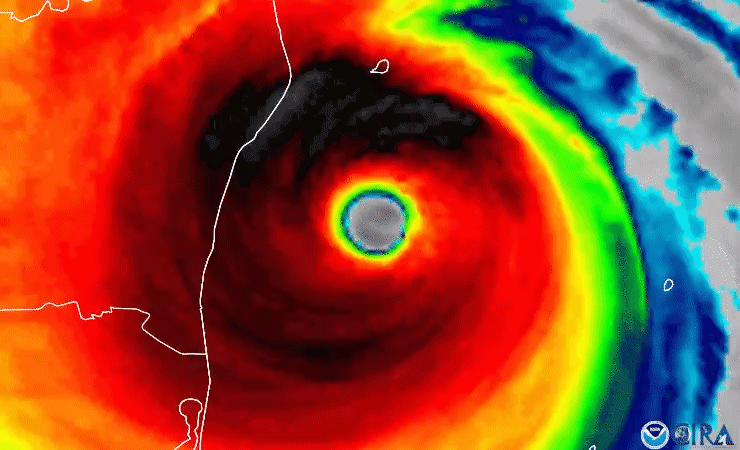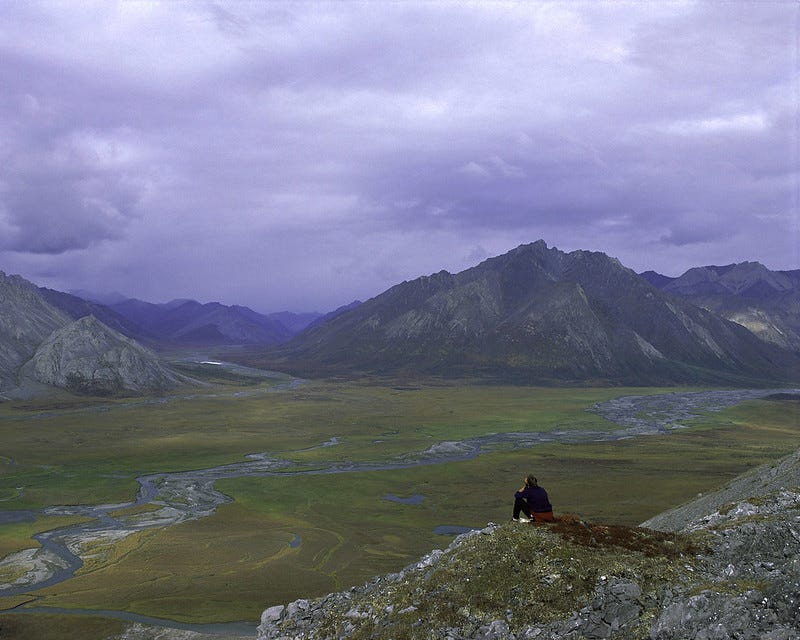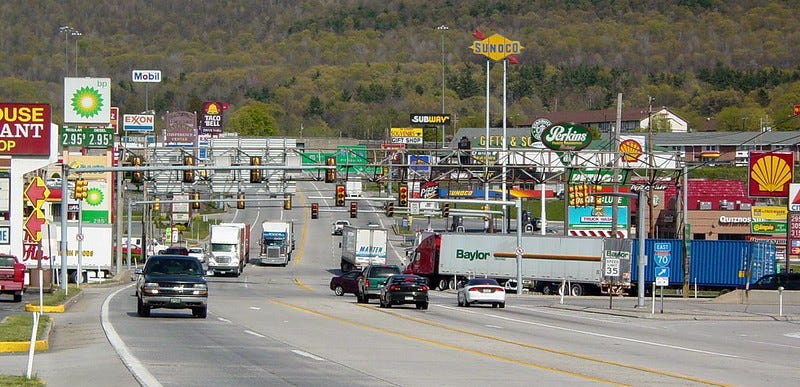Carbon trading hits record, Trump scorches earth, and readers debate green patent motives
Welcome to Callaway Climate Insights, and especially to our new subscribers. Please enjoy, and share with your colleagues.
Hurricane Iota last night slammed into almost exactly the same stretch of Nicaragua's Caribbean coast recently devastated by an equally powerful hurricane and then weakened as it tore across the northern part of the country, according to the U.S. National Hurricane Center. The AP reports Iota had intensified into an extremely dangerous Category 5 storm during the day Monday, but weakened as it neared the coast late Monday and made landfall with maximum sustained winds of 155 mph (250 kph). Nicaraguan officials said more than 40,000 people were in shelters.
Buying the Covid vaccine play isn’t the only trend in markets these days. Carbon trading hit a record high last week as the climate play gains favor in both North America and Europe.
The Intercontinental Exchange, which owns the New York Stock Exchange, among others, and got its start 20 years ago trading energy commodities, said the number of open derivatives contracts on carbon allowances and credits hit a record 2.65 million on Nov. 12. ICE, founded by Jeffrey Sprecher, said the number of participants in its carbon markets is up more than 40% in the past three years, led by trading in North America.
The increase matches gains among ESG funds and ETFs, which are heading toward a record year among more interest from young investors, and puts the climate transition strategy on a clearer path toward a more widely available carbon price, set by the markets. The transparency of contracts on a trading platform such as ICE helps remove some of the confusion around how companies are hedging their carbon exposure and transitions to renewable energy.
Markets are never perfect. But they do often tell us where we’re heading, if we’re willing to listen. Now, back to the vaccines.
More insights below. . . .
And don’t forget to contact me directly if you have suggestions or ideas at dcallaway@callawayclimateinsights.com.
Trump’s scorched earth policy, a new sustainable head at Goldman, and China’s coal scare
. . . . President Trump continued his scorched earth policy toward the incoming Biden Administration this week by opening up the bidding for oil companies to select tracts of land from 1.5 million acres in the Arctic National Wildlife Refuges in Alaska. If successful, the lease sales could occur days before Joe Biden’s inauguration in January. It will be interesting to see which oil companies will stick their heads above this parapet, knowing Biden will either reverse the leases or that in the decades it will take them to begin digging, they may not need the oil after all. . . .
. . . . The role of sustainability chief continues to amp up on Wall Street, with this week seeing Dina Powell McCormick named global head of sustainability and inclusive growth at Goldman Sachs, according to a scoop by DealBook. Powell, who worked in the administrations of both Trump and President George W. Bush in senior positions, re-joined Goldman in 2018. She will be responsible for the bank’s sovereign business, meaning she will advise foreign governments, among other things. As a sign of the role’s importance, she will report directly to Goldman CEO David Solomon, who has been raising his own profile in terms of ESG and Wall Street. . . .
. . . . One example of the “systemic risks” regulators have recently been attributing to climate change and the climate transition popped up in China last week after a state-owned coal company defaulted on 1 billion yuan ($151 million) in debt, sending a chill through Chinese debt and equity markets. Yongcheng Coal and Electricity Holding Group had only last month been granted the highest possible credit rating from a local ratings group. As we’ve seen here in the U.S. with the bankruptcy of several shale energy companies, such as Chesapeake Energy, the rapidly changing outlook for oil and gas worldwide won’t be without casualties. Transitions are messy, and happen slowly, then suddenly. . . .
. . . . A sudden budget crisis in the European Union this week threatens months of climate change planning and hundreds of millions in green recovery spending after Poland and Hungary, which had been holdouts on climate promises because of their reliance on coal, blocked the latest budget on democracy issues. The climate fight looks like an unwilling hostage in a big battle later this week over Zoom for European diplomats. . . .
Are oil companies creating ‘patent thickets’ to ward off green tech?
. . . . Mark Hulbert’s recent column about oil companies and green patents elicited several emails from readers asking whether the patent proliferation was part of a Big Oil conspiracy to prevent competition. Hulbert was intrigued enough to revisit the study with one of its authors, Lauren Cohen from Harvard Business School, and in the process, set himself on a new investigation . . . .
Data driven: Saving the data

. . . . Important acoustic and oceanographic instruments used for climate data research have been recovered from the Beaufort Sea, north of Alaska, in a rescue mission by the Norwegian Coast Guard, The Barents Observer reports. According to the report, the moorings were set out in the Beaufort Sea last year with a plan to be recovered by the U.S. Coast Guard icebreaker USCGC Healy this fall. But the ship had to cancel due to mechanical problems, and because the U.S. Coast Guard didn’t have other other capable ice-classed ships available, the Norwegians were asked to assist. The KV Svalbard, Norway’s biggest coast guard ship with icebreaking capabilities, started the voyage across the Arctic in mid-October in what is the first-ever sailing by the Norwegians to the waters north of Alaska, the Observer reports. . . .
News briefs: Bezos fund grants, saving moose from climate change
Editor’s picks:
Bezos Earth Fund selects groups to get almost $800 million in grants
Moose and ticks: Stemming the loss of an American icon
Some people plan to drive more post-Covid, climate poll shows
Latest findings: New research, studies and projects

Review of academic research on the green bond market
From the abstract: This paper adopts an interdisciplinary approach to map the burgeoning field of literature on green bonds and climate finance more broadly. The authors situate the green bond market within the development of climate finance by outlining the role that scientific research plays in developing green bond guidelines and standards. They examine this trend from an anthropological and economic-history approach, before delving into the policy research that is emerging in the climate finance and green bond field. This provides the context for an analysis of the rapidly growing body of legal research on the green bond market, including a reflection on the legal ramifications of a pricing difference between vanilla and green bonds. Finally, they propose areas for further research in each of our respective disciplines of anthropology, policy, and law. (Paper available at SSRN.)
Authors: Lionel Mok, Hong Kong University of Science & Technology; Aneil Tripathy, Brandeis University; Grégoire Lunven, Chinese University of Hong Kong.
More of the latest research:







